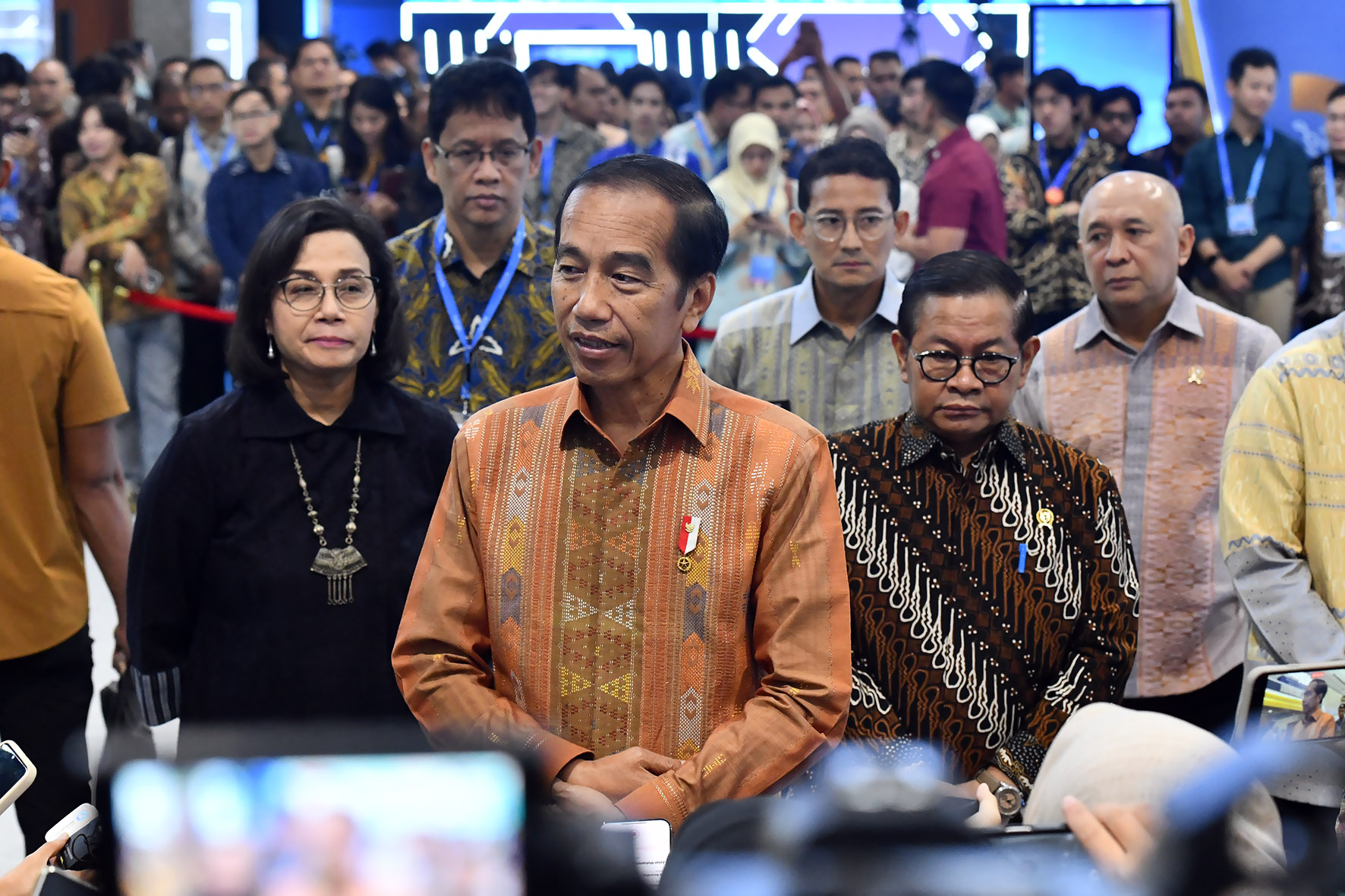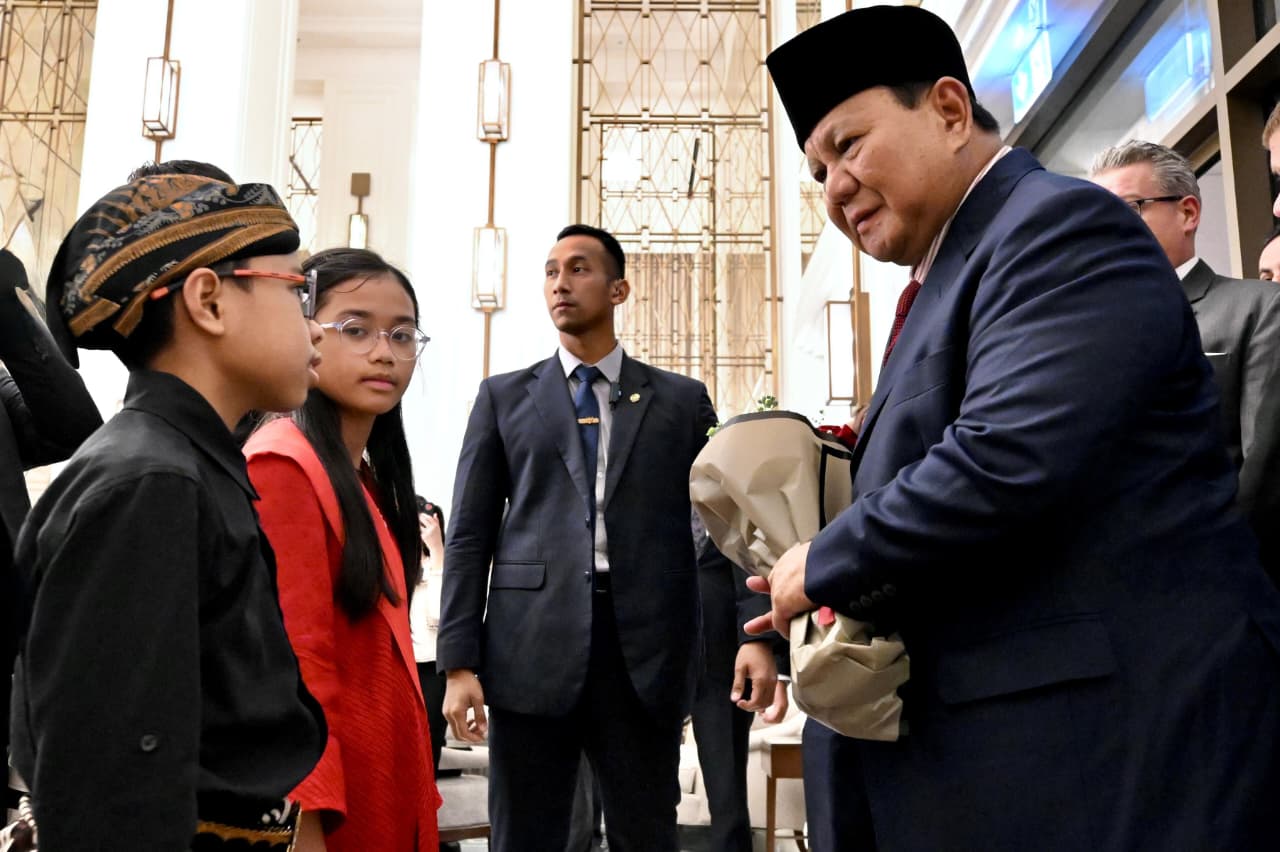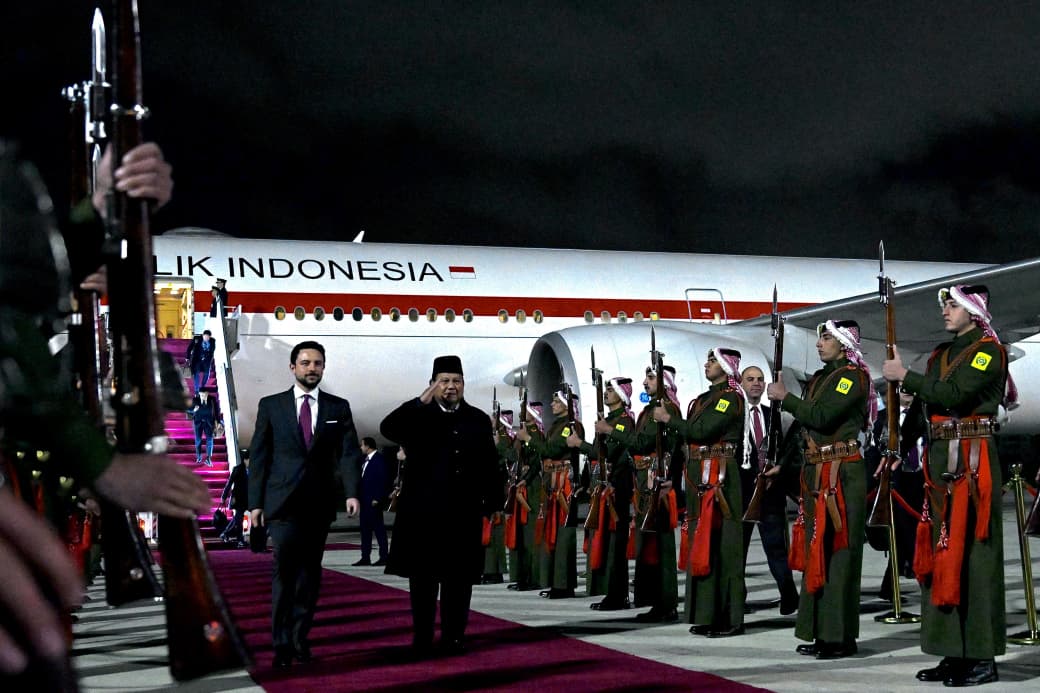President Jokowi: Indonesia’s Digital Economy Has Potential to Reach Rp5,800 Trillion by 2030

President Jokowi attends the Indonesian Digital Financial Economy Festival and Indonesian Creative Works (FEKDI-KKI) at the Jakarta Convention Center in Jakarta, Thursday (08/01) (PR of Cabinet Secretariat/Djay)
Indonesia’s digital economy is projected to grow fourfold by 2030, reaching around US$210 – US$360 billion or Rp5,800 trillion, President Joko “Jokowi” Widodo has said.
President Jokowi went on to say that digital payment will also grow 2.5 times by 2030, reaching US$760 billion or Rp12,300 trillion, considering that in 2030, Indonesia will experience a demographic bonus in which 68 percent of the total population will be made of the of productive-age population.
The President further said that the number of cell phones used in Indonesia has reached 354 million units, surpassing the total population of 280 million people, and the number of internet users has reached 185 million.
“This has great potential,” he said in his remarks at the Indonesian Digital Financial Economy Festival and the Indonesian Creative Works (FEKDI-KKI) at the Jakarta Convention Center in Jakarta, Thursday (08/01).
To that end, the Head of State highlighted the significant role of digital transformation, especially in the economic and financial sectors, while underscoring that the potential is also boosted by the rapid development of technology, including the application of Artificial Intelligence (AI) in various sectors, such as administration, services, and entertainment sectors.
On that occasion, President Jokowi also said that SMEs in Indonesia have a great opportunity if they can adapt to digital transformation, considering that the number of SMEs in Indonesia has reached 64 million.
“The digitalization of SMEs will boost our digital economic growth and digital payment,” he added.
The President continued that the digital transformation of SMEs must be inclusive and equitable to facilitate equal access to vulnerable groups, lower-class society, micro-economy, and SMEs. Thus, President Jokowi ordered the Financial Services Authority (OJK) and central Bank Indonesia (BI) to strengthen people’s protection in the digital economic sector.
“Our financial literacy is still at a lower level. I noticed that 50 percent of our people are still vulnerable to fraud and cybercrime risks. Thus, a consumer protection system must be prepared. Consumer data safety must be ensured. Do not let vulnerable groups be at a disadvantage,” he remarked. (FID/DNS) (AP/RAS/MUR)








